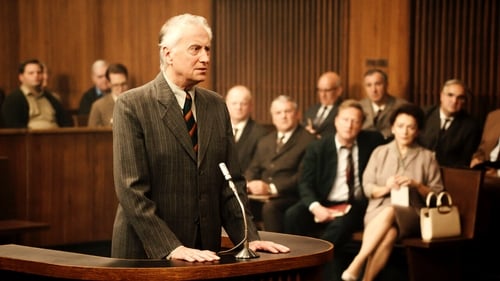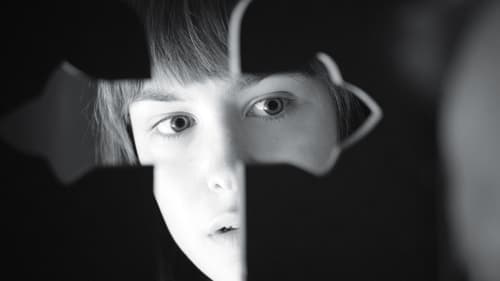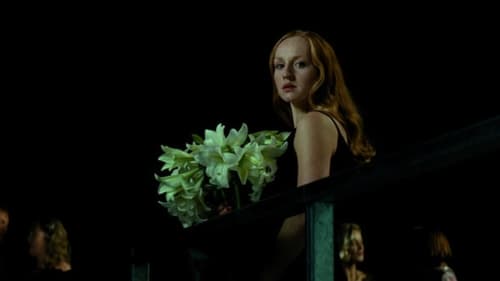
Director
Franz Murer, the Butcher of Vilnius, a former Austrian SS officer, established, organized, and ruled the Vilnius ghetto in Lithuania during the World War II. Different survivors of the Shoah testify when he is judged in 1963, hoping to do justice, but, although the evidence is overwhelming, the desire to close this obscure chapter of history seems to surpass the desire for justice.

Writer
Germany, 1967. Ruby & Martin, a young couple, are rehearsing their uprising. The price is high: expulsion from school, parental violence, and ultimately institutionalization. But they are ready to take on the cause of love.

Director
Germany, 1967. Ruby & Martin, a young couple, are rehearsing their uprising. The price is high: expulsion from school, parental violence, and ultimately institutionalization. But they are ready to take on the cause of love.

Director
At some point in the not-so-distant future, an unnamed European city has evolved into a bizarre dystopian metropolis, whose residents inhabit towering utopian high-rises and work, collectively, in a single compound.

Producer
An experimental study about the love between Franz Kafka and his adored Felice based on their correspondence.

Editor
An experimental study about the love between Franz Kafka and his adored Felice based on their correspondence.

Writer
An experimental study about the love between Franz Kafka and his adored Felice based on their correspondence.

Director
An experimental study about the love between Franz Kafka and his adored Felice based on their correspondence.

Editor
Two women fought with uncompromising conviction to change the world in the late 1960s - Inge Viett as a former member of the RAF in Germany, Maria Barhoum as former member of the FAU in Uruguay. In 1999, they met in Cuba, a country that seemed to mirror many of their questions, hopes and fears. The film looks at their real lives and different roads to exile; two utopian visions sought under very different conditions on separate continents. It is a double portrait of two extraordinary women that succeeds in avoiding the twin pitfalls of condemnation and glorification.

Writer
Nine persons sign up for a self-awareness course at an isolated country estate. Dr. Romero, a charismatic therapist, and his assistants confront the patients with their problems. Cut off from the rest of the world, the participants are increasingly drawn into the therapy's spell.

Director
Nine persons sign up for a self-awareness course at an isolated country estate. Dr. Romero, a charismatic therapist, and his assistants confront the patients with their problems. Cut off from the rest of the world, the participants are increasingly drawn into the therapy's spell.

Director
A few hours in the life of empress Sisi; a summer night at Gödöllö. A game with operetta and melodrama; a grotesque with much colour, music, dancing, and bloodshed.

Writer
A few hours in the life of empress Sisi; a summer night at Gödöllö. A game with operetta and melodrama; a grotesque with much colour, music, dancing, and bloodshed.

Writer
Darkness and its possession evoke artistic "pre-images": primarily Expressionism and its "after-images". The story is told of a stroll through the (cinematic) night, of absurd and of dead theater.

Director
Darkness and its possession evoke artistic "pre-images": primarily Expressionism and its "after-images". The story is told of a stroll through the (cinematic) night, of absurd and of dead theater.

"Studio Schönbrunn" is an ironic play with quotations. Paula Wessely in the Nazi-Wien-Film-production "Heimkehr", Leni Riefenstahl's biography, as well as Nestroy, Mozart, Marx, Frank Sinatra, Jandl. The text is adapted, de-familiarized and de-subjectivized. Consequently, the leading actor shoots the film's author.

Editor
"Studio Schönbrunn" is an ironic play with quotations. Paula Wessely in the Nazi-Wien-Film-production "Heimkehr", Leni Riefenstahl's biography, as well as Nestroy, Mozart, Marx, Frank Sinatra, Jandl. The text is adapted, de-familiarized and de-subjectivized. Consequently, the leading actor shoots the film's author.

Writer
"Studio Schönbrunn" is an ironic play with quotations. Paula Wessely in the Nazi-Wien-Film-production "Heimkehr", Leni Riefenstahl's biography, as well as Nestroy, Mozart, Marx, Frank Sinatra, Jandl. The text is adapted, de-familiarized and de-subjectivized. Consequently, the leading actor shoots the film's author.

Director
"Studio Schönbrunn" is an ironic play with quotations. Paula Wessely in the Nazi-Wien-Film-production "Heimkehr", Leni Riefenstahl's biography, as well as Nestroy, Mozart, Marx, Frank Sinatra, Jandl. The text is adapted, de-familiarized and de-subjectivized. Consequently, the leading actor shoots the film's author.

Director
Short film made by a group of young directors in Berlin.


















